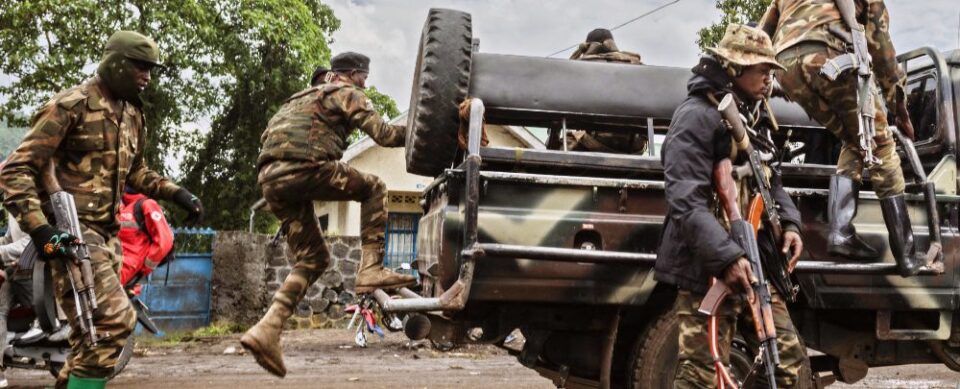By Frank Kamuntu
M23, or the March 23 Movement, is one of more than 100 armed groups fighting Congolese forces in the mineral-rich eastern DRC. It is present in North Kivu province in areas bordering Rwanda and Uganda and has more than 8,000 fighters, according to the UN.
It is named after the date in 2009 of the signing of an accord between the National Congress for the Defence of the People (CNDP), a Tutsi-led rebel group, and the Congolese government to end a revolt led by the Tutsi people in eastern DRC.
Why Is M23 Fighting?
M23 was created in 2012 after former CNDP troops rebelled against the Congolese government, accusing it of failing to implement the 2009 agreement by integrating Tutsi fighters into the army, protecting minorities and distributing resources evenly.
It says its objective is to safeguard the interests of the Congolese Tutsi and other minorities, including protecting them against Hutu rebel groups who escaped to the DRC after taking part in the 1994 genocide that targeted Tutsis.
In 2012, the militia made significant territorial gains in eastern DRC, including briefly seizing Goma before withdrawing 10 days later after an agreement brokered by neighbouring nations.
In a resurgence starting in 2022, the group mounted an offensive in North Kivu against DRC’s armed forces and the UN mission in the country. M23 took control of Rubaya, a key coltan mining town, last year. It makes $800,000 (£644,800) monthly in taxes on production and trade of the mineral, according to the UN.
This month, the rebel group has made further territorial gains, capturing the towns of Katale, Masisi, Minova and Sake, and now the city of Goma.
Goma, a regional hub of over 2 million people, is on the DRC’s border with Rwanda. The city has been afflicted by the ebb and flow of violence for three decades — collateral damage in conflicts that exploded in eastern Congo after the 1994 Rwandan genocide.
The capture of Goma is a dramatic culmination of over three years of conflict in North Kivu province. The M23 is now threatening to march “all the way to Kinshasa,” the DRC capital, in a conflict that could have seismic impacts across central Africa. Here is what to know.
The region, with its large reserves of wealth, offers other opportunities to the rebels. With the capture of Goma, the M23 now has access to a key border city and a critical mineral smuggling route into Rwanda. A 2024 United Nations report estimated that the rebels smuggled at least 150 metric tons of coltan — used in electronics — into Rwanda last year.
How Is Rwanda Involved?
Rwanda provides material support to the M23, according to several reports by an independent panel of United Nations experts. It has troops in North Kivu — up to 4,000, according to the U.N. panel reports — and its special forces oversee M23 units. Drone imagery has captured troops regularly crossing the border into M23-controlled territory for years.
Rwanda has also deployed high-tech military equipment on the battlefield in North Kivu, including as mobile air-defense systems and precision-guided munitions.
The United Nations, including Security Council members such as the U.S., France and the United Kingdom, agree that Rwandan forces are operating in Congo. Rwanda’s government, however, has never publicly admitted to being involved.
Rwanda says the conflict has deeper roots that need to be addressed. They claim that militias such as the Democratic Forces for the Liberation of Rwanda (FDLR), a Hutu rebel group which includes some of those responsible for the Rwandan genocide, are still active in eastern Congo. Rwanda accuses the Congolese army of fighting alongside them, an accusation the Congolese deny.
People who crossed from Congo wait for assistance in Gyseny, Rwanda, on Tuesday, following M23 rebels’ advances into eastern Congo’s capital Goma.
What Next?
The M23 and Rwandan troops are moving farther into the province of South Kivu, according to local reports on the ground. The U.N. and others are concerned that there could be a move on the city of Bukavu, which also lies on the Rwandan border.
The DRC government has repeatedly called for international sanctions against Rwanda for backing the M23. So far African and international diplomacy has had little impact.
Secretary of State Marco Rubio told Rwanda’s President Kagame that the U.S. is “deeply troubled” by the fighting. Countries including the U.K. and Germany have threatened to cancel aid to Rwanda. But still the fighting continues.
Have An Advert Or Article You Want Us To Publish? Email: swiftnews0@gmail.com

